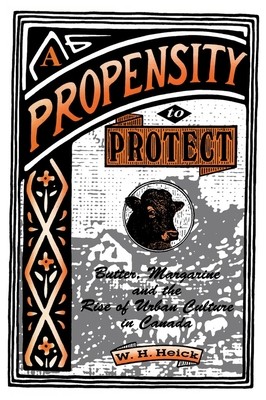
- We will send in 10–14 business days.
- Author: W H Heick
- Publisher: Wilfrid Laurier University Press
- Year: 2013
- Pages: 239
- ISBN-10: 155458485X
- ISBN-13: 9781554584857
- Format: 15.2 x 22.9 x 1.3 cm, minkšti viršeliai
- Language: English
- SAVE -10% with code: EXTRA
Reviews
Description
For Canada the last century was one of great social and economic change: an increasingly urban population witnessed shifts from an agricultural to a mixed economy and from moderate to greater wealth. Heick chronicles how changing attitudes toward butter and margarine reflected the nature of that society. He demonstrates how the ban on the manufacture, importation, and sale of margarine was instigated in 1986 at the behest of the nascent, yet influential diary industry, particularly in Ontario. This ban was based on the premise that margarine was not a pure food. Despite the lifting of the ban in 1918-23, margarine would only appear as a permanent fixture of the Canadian food spectrum after World War II. The author contends that post-World War II urbanization, and a desire to enjoy a more prosperous life after wartime stringencies, were instrumental in this change. It was increasingly difficult for the Canadian diary industry to meet the nation's growing dairy requirements. Margarine was no longer viewed as impure; in fact it was now recognized as being a wholesome food and substitute for butter.
Heick's important study of the Canadian butter/margarine competition brings to light how the lengthy debate manifested itself in political, economic and social milieux.
EXTRA 10 % discount with code: EXTRA
The promotion ends in 21d.10:32:55
The discount code is valid when purchasing from 10 €. Discounts do not stack.
- Author: W H Heick
- Publisher: Wilfrid Laurier University Press
- Year: 2013
- Pages: 239
- ISBN-10: 155458485X
- ISBN-13: 9781554584857
- Format: 15.2 x 22.9 x 1.3 cm, minkšti viršeliai
- Language: English English
For Canada the last century was one of great social and economic change: an increasingly urban population witnessed shifts from an agricultural to a mixed economy and from moderate to greater wealth. Heick chronicles how changing attitudes toward butter and margarine reflected the nature of that society. He demonstrates how the ban on the manufacture, importation, and sale of margarine was instigated in 1986 at the behest of the nascent, yet influential diary industry, particularly in Ontario. This ban was based on the premise that margarine was not a pure food. Despite the lifting of the ban in 1918-23, margarine would only appear as a permanent fixture of the Canadian food spectrum after World War II. The author contends that post-World War II urbanization, and a desire to enjoy a more prosperous life after wartime stringencies, were instrumental in this change. It was increasingly difficult for the Canadian diary industry to meet the nation's growing dairy requirements. Margarine was no longer viewed as impure; in fact it was now recognized as being a wholesome food and substitute for butter.
Heick's important study of the Canadian butter/margarine competition brings to light how the lengthy debate manifested itself in political, economic and social milieux.


Reviews